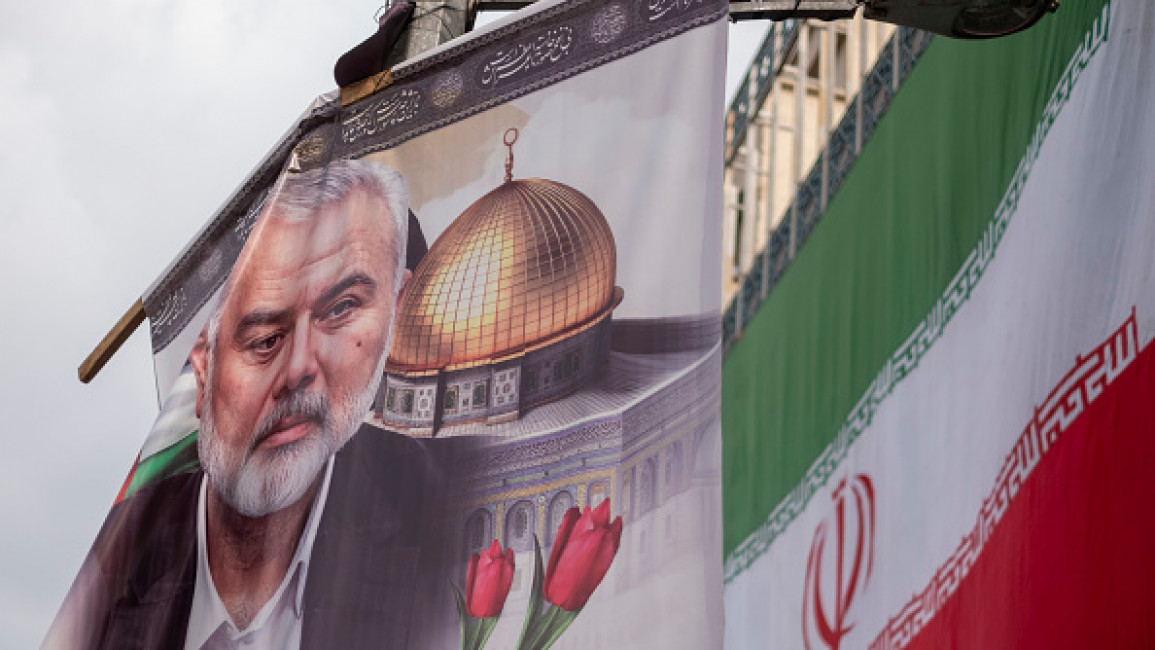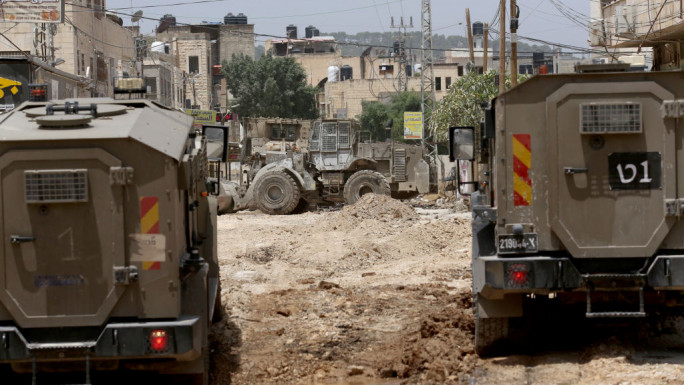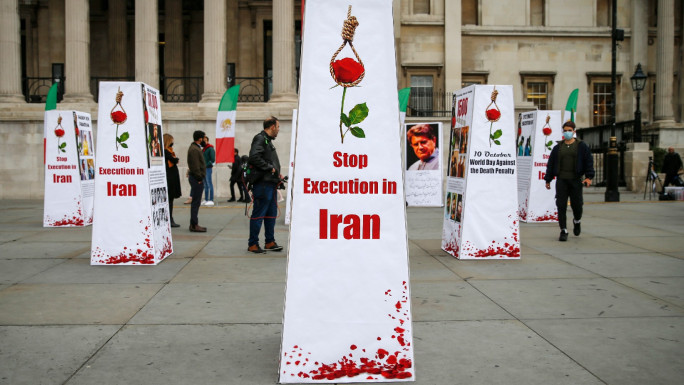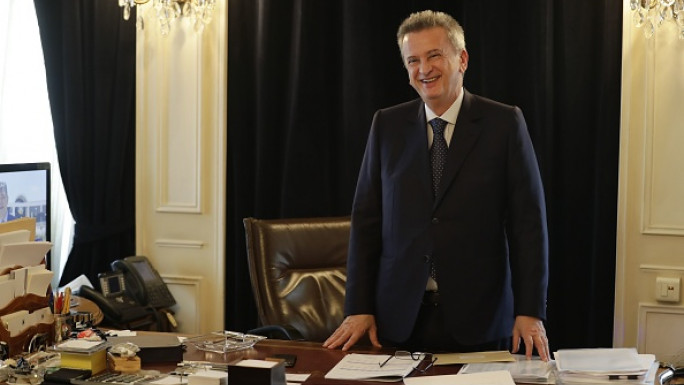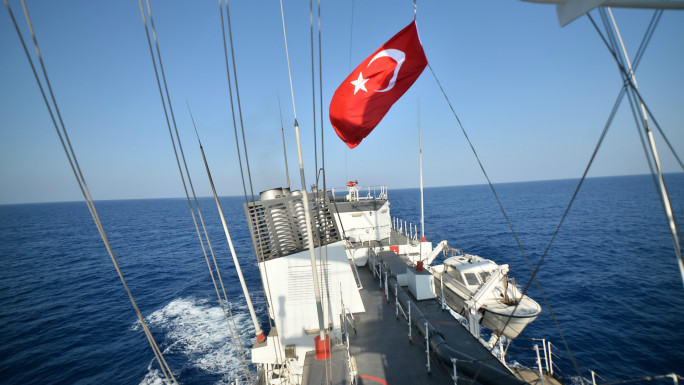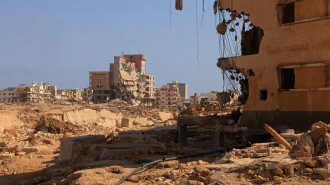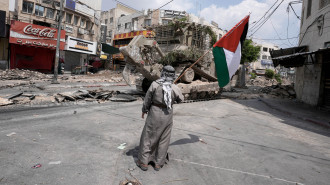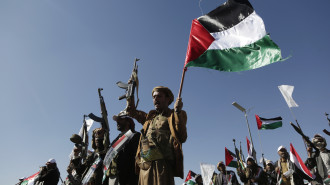
Inside Israel's history of assassinations in Iran

Tehran, Iran - The assassination in Tehran on Wednesday of Ismail Haniyeh, a senior political leader of the Palestinian movement Hamas, marks a significant escalation in ongoing geopolitical tensions between Israel and Iran.
Targeted during a visit to the country for the swearing-in of Iran’s new president, reformist politician and heart surgeon Masoud Pezeshkian, Haniyeh’s assassination has triggered a wave of condemnations and also highlights a historical pattern of targeted killings attributed to Israel.
Understanding the implications of this assassination requires delving into the context of Israel’s longstanding strategy of eliminating key figures perceived as threats, particularly within Iran, and examining the broader geopolitical ramifications.
A pattern of Israeli assassinations
Israel has a documented history of targeting Iranian figures, especially those involved in Iran’s nuclear program. These operations, designed to undermine Iran’s nuclear capabilities and disrupt its influence, have been a cornerstone of Israel’s defence strategy.
The assassinations of nuclear scientists such as Masoud Alimohammadi (2010), Majid Shahriari (2010), Daryoush Rezainejad (2011), Mostafa Ahmadi Roshan (2012), and Mohsen Fakhrizadeh (2020) exemplify this approach.
Each of these individuals was eliminated through meticulously planned operations, often involving sophisticated methods like car bombs, motorbike-mounted explosives, and automated weaponry.
Mohsen Fakhrizadeh’s assassination in November 2020 stands out due to the complexity and precision of the operation. Fakhrizadeh, a senior Iranian nuclear scientist and brigadier general in the Islamic Revolutionary Guard Corps (IRGC), was killed in an attack that Iranian authorities described as being executed by automated weapons, without any human agents on the scene.
This high-profile killing underscored the lengths to which Israel is willing to go to neutralise what it sees as existential threats.
The killing of Ismail Haniyeh adds a new dimension to Israel’s strategy of targeted assassinations. Unlike previous targets who were primarily involved in Iran’s nuclear program, Haniyeh was a prominent political leader of Hamas.
Ten months into Israel’s brutal war on Gaza, which has killed 39,000 Gazans, Haniyeh was killed by a projectile strike during an event that symbolised deepening ties between Iran and Hamas. A day later, the Israeli military claimed to have killed Hamas military commander Mohammed Deif in its air raid on Gaza’s Khan Younis on 13 July.
The Islamic Revolutionary Guard Corps (IRGC) confirmed Haniyeh’s assassination, and although no group has officially claimed responsibility, suspicion immediately fell on Israel. The timing of the assassination, amid heightened tensions and ongoing conflict between Israel and Hamas, suggests a strategic move by Israel to weaken Hamas, disrupt its operations, and derail ongoing ceasefire negotiations.
Tehran-based foreign policy analyst, Mehrdad Shokri, says that the timing of the assassination is linked to Israeli Prime Minister Benjamin Netanyahu’s recent visit to the United States, where he engaged with hard-line factions.
“Netanyahu’s discussions with these factions have emboldened him to escalate disruptive actions in the region, using the assassination to create internal tensions within Iran and destabilise the area further,” Shokri told The New Arab.
|
|
"Having engaged in talks with the hard-line factions in the US, Netanyahu has gained confidence to continue and escalate disruptive and destabilising actions in the region. These issues are also connected to the US elections - the more tense and unstable the region is, and the higher the likelihood of widespread war, the worse it is for the Democrats and the current US administration," Shokri added.
The analyst argues that Netanyahu is seeking to create crises within Iran, expand regional conflicts, and potentially drag the US and Western countries into the fray. He believes that this strategy serves Netanyahu’s interests by diverting attention from his domestic and international setbacks, particularly the stalled Gaza ceasefire and his unfulfilled promises to the Israeli public.
"The Israelis are seeking to create tension within our country,” says Shokri. “Previously, their media and officials had stated that the rise of the new reformist government in Iran would be detrimental to Israel because the consensus against Iran would be broken. This serves Netanyahu's interests and the hard-line factions in the US."
Haniyeh’s assassination has elicited strong reactions from Iranian officials and the public. Many politicians in Iran have condemned the act, framing it as an attack on Iranian sovereignty and a provocation designed to undermine Iran’s support for Palestinian resistance.
Yet statements from various officials have emphasised that Haniyeh’s killing will only strengthen the bond between Iran, Palestine, and the broader resistance movement.
“Iran’s response to the assassination will be measured and strategic,” says Shokri. "In addition to the assassination of Mr. Haniyeh, Israel has directly invaded Iranian soil.”
Despite reports that Iran’s top leadership promised “harsh revenge” against Israel, Shokri believes that even though the Iranian government will not remain idle, it will not rush.
“We should not expect Iran to engage in reactive or emotional behaviour today. This matter will be reviewed in various meetings, considering all aspects, and an appropriate response to Israel's disgraceful act will be planned in due time," he said.
The Iranian government’s calculated approach suggests that while retaliation is inevitable, it will be carefully planned to maximise impact and minimise unnecessary escalation. This stance is reflective of Iran’s broader strategy of maintaining resilience in the face of provocations while avoiding hasty actions that could lead to broader conflict.
"While Israel's strategy of targeted assassinations has been effective in disrupting its adversaries, it also carries the risk of retaliatory actions that could draw in regional and global powers"
Public sentiment in Iran
Streets in Tehran are adorned with condolence banners for Haniyeh, and public spaces are buzzing with debates about the incident, the nation’s security, and the implications of such high-profile attacks.
Saber Moradi, a 23-year-old sociology student at the University of Tehran, captures the sentiment of many Iranians when he expresses concern over the frequency and precision of these assassinations.
"There is no doubt that assassination is a cowardly act and condemnable,” Moradi told TNA. “But the number and precision of these assassinations targeting high-ranking individuals in Iran are very concerning. Iran always claims to be very advanced in terms of security, but such assassinations create doubt in our minds.”
Moradi’s remarks reflect a broader anxiety about the effectiveness of Iran’s security apparatus and the vulnerability of high-ranking officials. Yet despite this concern, there is also a strong sentiment of resilience and calls for decisive action.
Moradi, like many Iranians, supports Iran’s support for Palestine and views a strong response to Israel’s actions as a legitimate right.
"Ismail Haniyeh was a guest in Iran, and this act by Israel is mocking Iranians and disrespecting our nation. An attack was made on Iranian soil, and Iran must respond appropriately. Retaliation is Iran's right,” says Moradi.
“We should remember that every action has a reaction, and Israelis must also consider the consequences of their behaviour."
Broader implications
The assassination of Ismail Haniyeh is not an isolated incident but part of a broader pattern of Israeli operations aimed at destabilising its adversaries. These operations, while effective in eliminating key figures, also risk escalating tensions and provoking retaliatory actions that could spiral into broader conflicts.
Akbar Zarei, a political analyst and professor at Azad University in Zanjan, says that Israel’s strategy is to create chaos within Iran and the region, pointing to the recent wave of assassinations and sabotage activities in Lebanon, Iraq, and Iran which he says indicates a coordinated effort to undermine resistance movements and provoke instability.
"In less than 14-15 hours, three terrorist actions occurred in Lebanon, Iraq, and Iran. In these attacks, the second-in-command of Hezbollah in Lebanon Fuad Shukr, the political leader of the Hamas movement in Tehran, and one of the commanders of Al Hashd Al-Shaabi were martyred. This indicates that the Israeli regime intends to compensate for its previous defeats by assassinating resistance leaders."
Zarei’s analysis highlights a growing awareness of Israel’s tactics and a shift in global public opinion. He notes that there is increasing recognition of Israel as a disruptive force, with more people worldwide condemning its actions and demanding accountability.
"Today, there is a global discourse that sees Israel as a criminal, genocidal regime. It was not like this before,” says Zarei.
“Before, people did not dare criticise Israel fearing accusations of anti-Semitism and the Israeli lobby in the US and Europe. But now, people worldwide are more exposed to Israel's crimes."
The assassination of Ismail Haniyeh underscores the delicate balance of power in the Middle East and the potential for rapid escalation.
While Israel’s strategy of targeted assassinations has been effective in disrupting its adversaries, it also carries the risk of retaliatory actions that could draw in regional and global powers, says Zarei.
“The responses from Iran and its allies will be critical in shaping the future trajectory of the conflict,” he concludes.
Tooba Moshiri is a journalist covering Iran
This article is published in collaboration with Egab.
